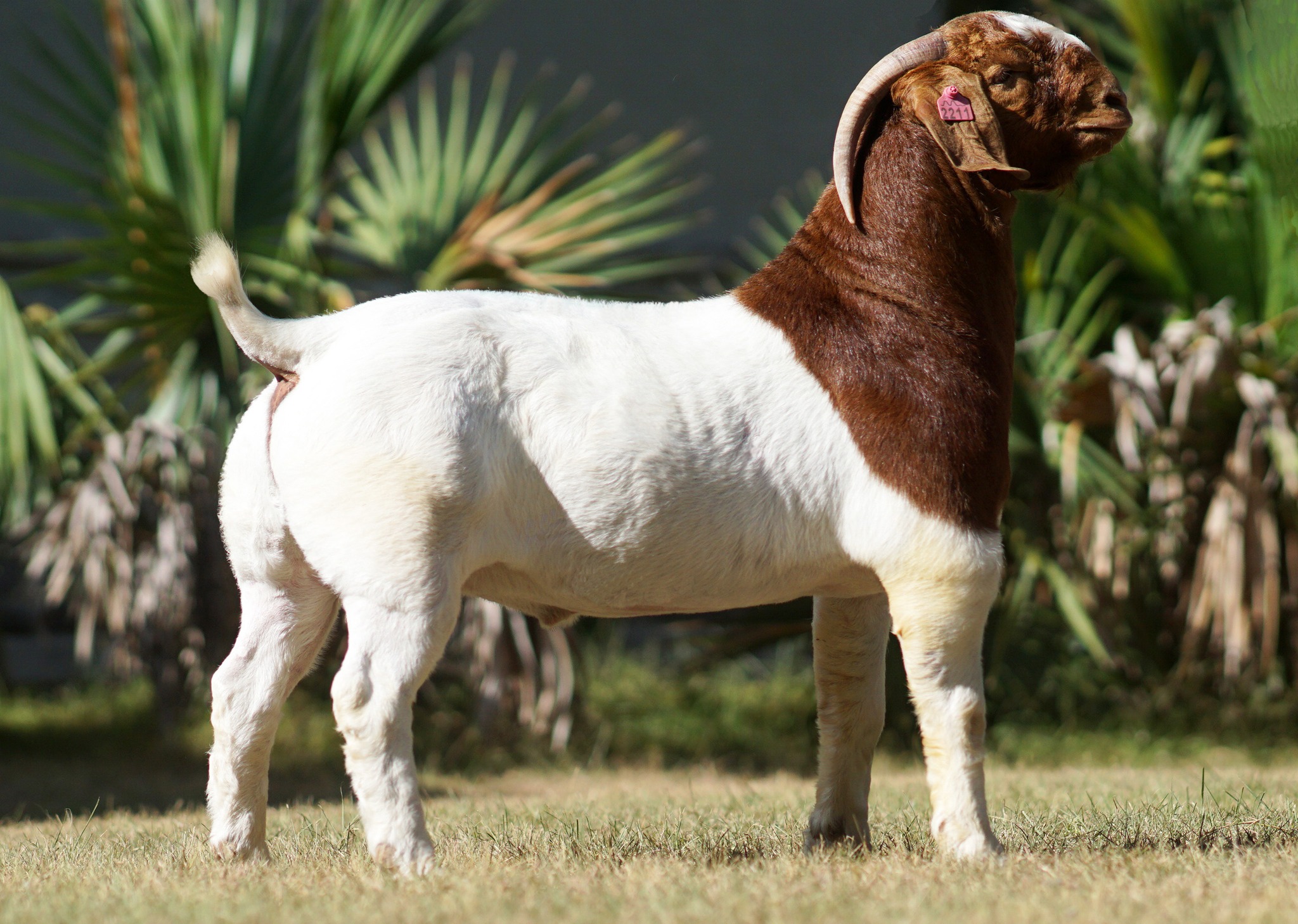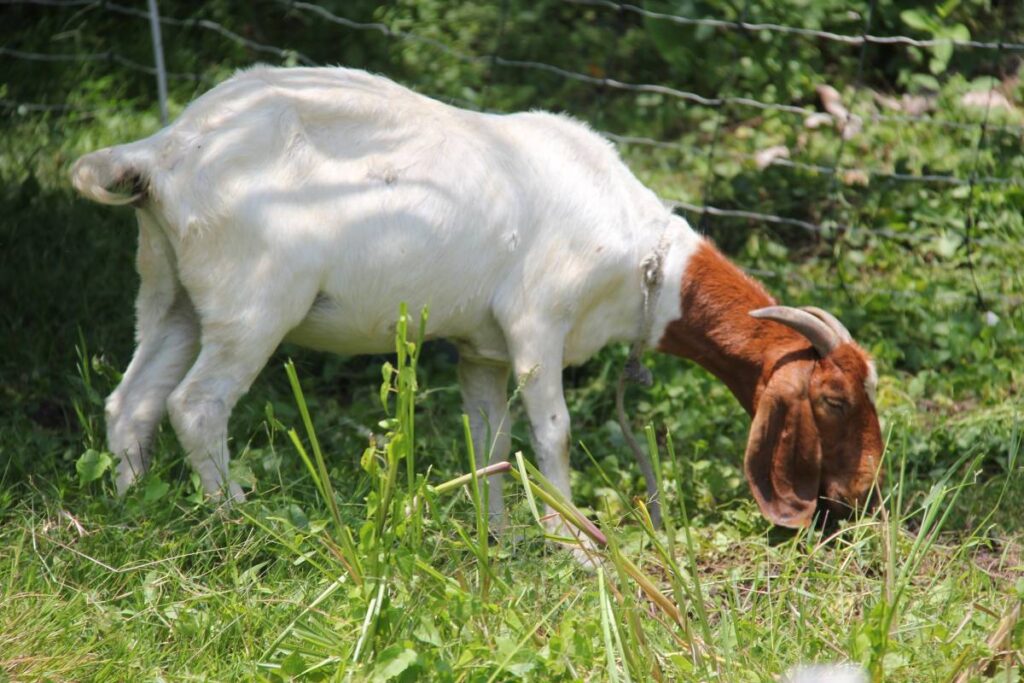When it comes to raising livestock, Kansas boer goats have become a hot topic for farmers and hobbyists alike. If you're thinking about adding these majestic animals to your farm or backyard, you're in the right place. This ultimate guide will take you through everything you need to know about boer goats in Kansas, from their unique characteristics to essential care tips. Let’s dive in, shall we?
Boer goats are not just any ordinary goats. They’re like the rock stars of the goat world, known for their impressive size, stunning appearance, and incredible meat production. Whether you’re a seasoned farmer or a newbie in the livestock game, understanding boer goats can be a game-changer for your agricultural journey.
But why focus on Kansas? Well, Kansas offers a unique environment that makes it an ideal location for raising boer goats. With its vast open spaces and favorable climate, the state provides the perfect conditions for these goats to thrive. So, if you're a Kansan goat enthusiast, this guide is tailor-made just for you.
Read also:Friendship Dynamics Between David Moskowitz And Chris Rock A Deep Dive
Why Kansas Boer Goats Are Gaining Popularity
Let’s talk about why boer goats are making such a splash in Kansas. It’s not just about their good looks; it’s about the many benefits they bring to the table. From their fast growth rates to their adaptability, boer goats are quickly becoming the go-to choice for livestock enthusiasts across the state.
Here’s a quick rundown of why Kansas boer goats are so popular:
- Fast growth rates mean more meat production in less time.
- They're hardy and can adapt to various climates, including Kansas' unique weather patterns.
- Boer goats are excellent foragers, reducing the need for expensive feed supplements.
- They’re relatively low maintenance compared to other livestock, making them perfect for both large-scale farms and small homesteads.
So, if you’re thinking about jumping on the boer goat bandwagon, you’re definitely not alone. More and more farmers in Kansas are realizing the potential of these incredible animals.
Characteristics of Boer Goats in Kansas
Boer goats have some pretty distinct characteristics that set them apart from other goat breeds. Their striking red heads and white bodies make them easy to spot in any herd. But it’s not just about looks. These goats are built for productivity and resilience.
Physical Traits
Boer goats are large and muscular, with males often weighing between 200 to 350 pounds and females ranging from 150 to 250 pounds. Their robust bodies are designed for maximum meat production, making them a favorite among meat goat breeders.
Here’s a quick overview of their physical traits:
Read also:Jenna Yeh An Insight Into Her Life And Achievements
- Red heads with a distinctive white blaze down the middle.
- Long, pendulous ears that give them an elegant appearance.
- Short, smooth coats that help them stay cool in hot climates.
- Strong legs and sturdy hooves, perfect for navigating the diverse terrains of Kansas.
Temperament and Behavior
Boer goats are known for their docile nature, making them easy to handle even for beginners. They’re social animals and thrive in group settings, so it’s important to keep them in herds. Despite their gentle demeanor, they’re also quite curious and adventurous, often exploring their surroundings with enthusiasm.
One interesting fact about boer goats is that they’re surprisingly intelligent. This means they can be trained relatively easily, which is a huge plus if you’re looking to manage a large herd.
The Benefits of Raising Boer Goats in Kansas
Now that we’ve covered the basics, let’s talk about the benefits of raising boer goats in Kansas. From economic advantages to environmental benefits, there are plenty of reasons to consider these goats for your farm.
Economic Advantages
Boer goats are a lucrative investment for farmers. Their high meat yield and fast growth rates mean you can turn a profit relatively quickly. In fact, studies have shown that boer goats can reach market weight in as little as six months, making them a highly efficient meat-producing animal.
Additionally, the demand for goat meat is on the rise, especially in ethnic markets. This means there’s a growing market for boer goat meat, providing farmers with a steady income stream.
Environmental Benefits
Boer goats are excellent foragers, which means they can help control vegetation and reduce the risk of wildfires. This is particularly important in Kansas, where grasslands and prairies are abundant. By introducing boer goats to your land, you’re not only producing valuable meat but also contributing to the health of the ecosystem.
Plus, boer goats are known for their ability to thrive on marginal land, meaning you don’t need prime grazing areas to raise them successfully. This makes them a great option for farmers looking to maximize their land use.
Understanding Boer Goat Care in Kansas
Raising boer goats in Kansas requires a bit of know-how. From proper nutrition to healthcare, there are several factors to consider when caring for these animals. Let’s break it down step by step.
Nutrition and Feeding
Boer goats are natural foragers, which means they can thrive on a diet of grass, hay, and browse. However, to ensure optimal growth and health, it’s important to supplement their diet with quality feed, especially during the winter months when forage is scarce.
Here’s a quick guide to feeding boer goats:
- Provide access to fresh, clean water at all times.
- Offer high-quality hay, such as alfalfa or clover, to supplement their foraging.
- Use a balanced goat feed to ensure they’re getting all the necessary nutrients.
- Avoid overfeeding grain, as this can lead to health issues like bloat.
Healthcare and Management
Keeping your boer goats healthy is crucial for their productivity and longevity. Regular veterinary check-ups, vaccinations, and parasite control are essential components of goat care.
Here are some tips for maintaining the health of your boer goats:
- Establish a regular deworming schedule to prevent internal parasites.
- Vaccinate your goats against common diseases like clostridium and tetanus.
- Check their hooves regularly and trim them as needed to prevent overgrowth.
- Monitor their behavior for signs of illness, such as lethargy or loss of appetite.
Common Challenges in Raising Boer Goats
While boer goats are relatively low maintenance, there are still some challenges to be aware of. From predators to weather conditions, here are some common issues you might face when raising boer goats in Kansas.
Predator Control
Predators like coyotes and stray dogs can pose a threat to your boer goats. To protect your herd, consider using guard animals like dogs or donkeys, or installing fencing that’s predator-proof.
Weather Adaptation
Kansas’ weather can be unpredictable, with hot summers and cold winters. Providing adequate shelter and ensuring your goats have access to shade and ventilation during the summer months can help them stay comfortable and healthy.
Starting Your Boer Goat Journey in Kansas
If you’re ready to start raising boer goats in Kansas, there are a few steps you can take to ensure success. From choosing the right breeders to setting up your farm, here’s what you need to know.
Selecting Quality Breeding Stock
When purchasing boer goats, it’s important to choose quality breeding stock. Look for goats with good conformation, strong muscling, and a history of high productivity. Visiting reputable breeders and asking for recommendations from other farmers can help you find the best goats for your farm.
Setting Up Your Farm
Before bringing your goats home, make sure your farm is set up to accommodate them. This includes providing adequate fencing, shelter, and water sources. Investing in quality infrastructure will pay off in the long run, ensuring your goats have a safe and comfortable environment to thrive in.
Understanding Market Demand for Boer Goat Meat
As mentioned earlier, the demand for goat meat is on the rise, and boer goats are at the forefront of this trend. Understanding the market demand for boer goat meat can help you make informed decisions about your farming operation.
Here are some key points to consider:
- Goat meat is becoming increasingly popular in ethnic markets, particularly among Hispanic and Middle Eastern communities.
- Consumers are looking for lean, healthy meat options, and goat meat fits the bill perfectly.
- Building relationships with local butcher shops and restaurants can help you tap into this growing market.
Final Thoughts: Why Boer Goats Are the Right Choice for Kansas Farmers
In conclusion, boer goats are an excellent choice for farmers and hobbyists in Kansas. With their impressive characteristics, numerous benefits, and relatively low maintenance requirements, they offer a fantastic opportunity for those looking to get into the livestock business.
So, whether you’re a seasoned farmer or just starting out, consider adding boer goats to your farm. With the right care and management, these goats can provide you with a steady income stream while also contributing to the health of your land.
Don’t forget to leave a comment or share this article if you found it helpful. And if you’re ready to take the next step, check out our other resources on goat farming and livestock management. Happy farming, y’all!
Table of Contents
- Why Kansas Boer Goats Are Gaining Popularity
- Characteristics of Boer Goats in Kansas
- The Benefits of Raising Boer Goats in Kansas
- Understanding Boer Goat Care in Kansas
- Common Challenges in Raising Boer Goats
- Starting Your Boer Goat Journey in Kansas
- Understanding Market Demand for Boer Goat Meat
- Final Thoughts: Why Boer Goats Are the Right Choice for Kansas Farmers


